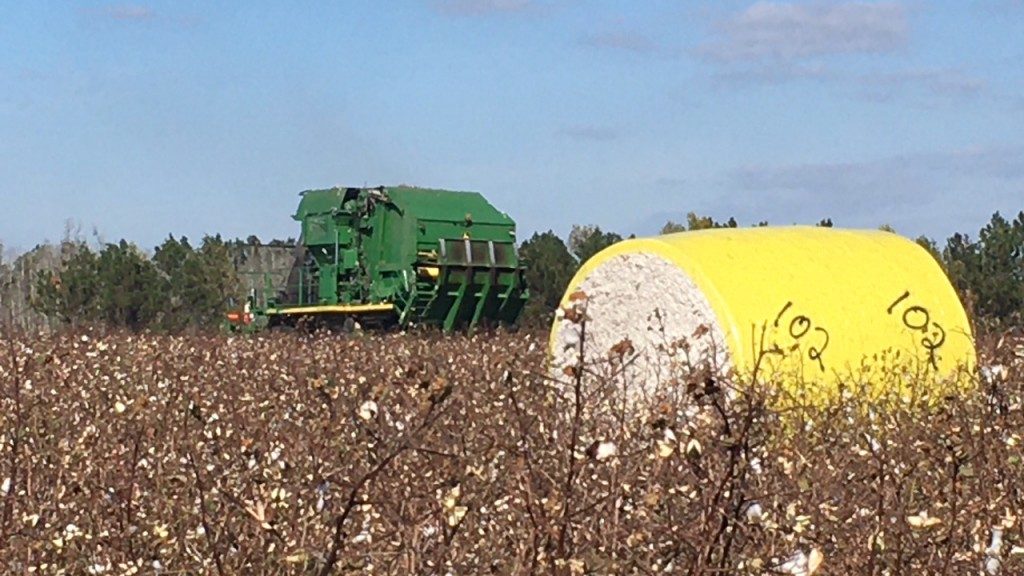Cattlemen and hay producers need to watch for armyworms in their hayfields and pastures. I have received a few questions about controlling this pest from local hay producers.

The life cycle of an armyworm is interesting. Armyworms cannot tolerate the winters in Georgia. The moths migrate from Florida, south Texas, and South American each spring and summer. Moths become active in the evenings and have an average life span of 2 to 3 weeks. The female moths lay eggs at night. The majority of eggs are laid 4 to 9 days after the female emerges from the pupal stage. These eggs hatch within 2 to 4 days after being laid by the moth. Armyworm moths prefer light-colored surfaces to lay eggs. In pastures and hayfields please evaluate places such as fence rails and posts and tree limbs for eggs.
Armyworms are most active in the early morning or late afternoon when temperatures decrease. They can hide in the thatch and topsoil layers during the hotter parts of the day. Armyworms have six stages of larval development. The mature larvae eat more than all other ages put together. During the summer, caterpillars feed for about 14 days. It is interesting to note that the largest amount of feeding is in the last four days which occurs when the caterpillar molts into its largest size. The fully-grown larvae then burrow into the soil and form pupae. Ten days after the larvae burrow into the soil, the moths emerge. Economic treatment thresholds are three armyworm larvae per square foot in hayfields and pastures. Young larvae are much easier to kill than adult armyworm larvae. Several insecticides are available to control armyworms and please consult your local county Extension agent for options. Please pay careful attention to grazing or pre-harvest intervals of the product used for armyworm control. According to Dr. Will Hudson, UGA Forage Entomologist, “The armyworm pressure has been high in some areas this year and many growers have been depending exclusively on pyrethroids for a good many years, so a switch to spinosad or a diamide (Prevathon or Besiege) would be a good choice.”
If you would like information on insect control in perennial forages please go HERE
Below is additional information about insecticides used for armyworm control in forage production systems.

If you have any questions about insect control in forages please contact your local county Extension agent.
Jeremy Kichler is the County Extension Coordinator representing the University of Georgia Cooperative Extension in Colquitt County. His email is jkichler@uga.edu and phone number is 229 616 7455.
